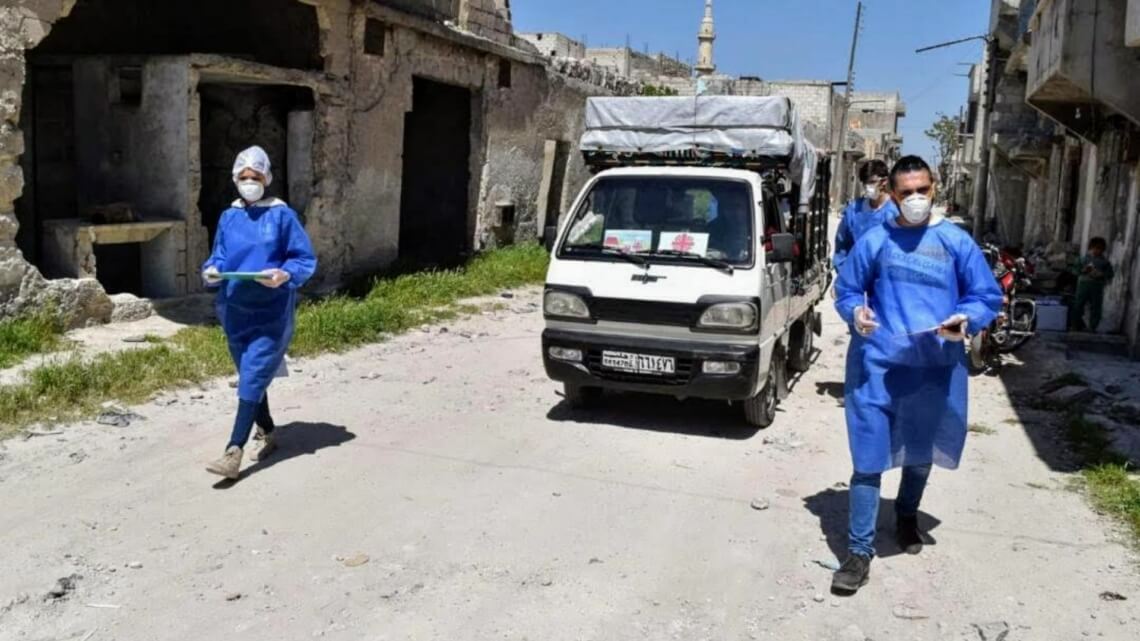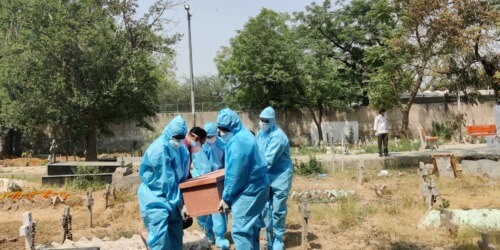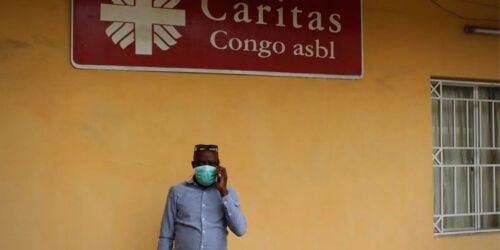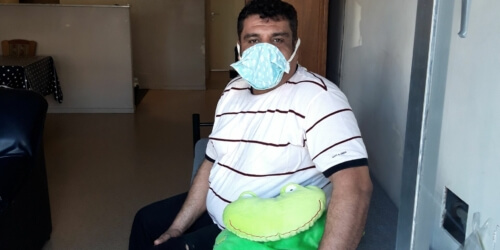“The health crises, and COVID in particular, have a terrible impact on people who are in situations of desperation or immense poverty.” Sébastien sets the tone: the situation is serious.
INADEQUATE SANITARY AND HYGIENIC MEASURES
Confinement is a protective weapon against the spread of the virus. However it seems hardly applicable in the context of great poverty in the Middle East. “For the vast majority of people, it’s a question of survival. If they don’t work one day, they won’t eat the next day. Stuck between the risking contamination or risking hunger the next day – the choice is easily made.”
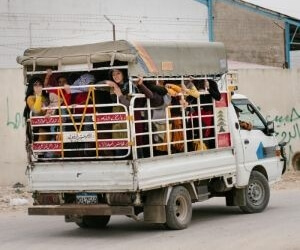 ©Isabel Corthier – Women from the Moussa refugee camp leave to work for a pittance (Lebanon, 2019).
©Isabel Corthier – Women from the Moussa refugee camp leave to work for a pittance (Lebanon, 2019).
>>DONATE TO THE CORONAVIRUS CARITAS EMERGENCY FUND
“When you live in a high level of promiscuity, it is physically impossible to put people two meters apart,” adds Sébastien on the physical impossibility of enforcing containment. I am thinking in particular of Gaza, with 2 million inhabitants in a microscopic territory. You can’t talk about physical distancing when you live in a huge prison like that.” And this is true in both Syrian cities and in Lebanon, where many people who have found refuge share small, often unhealthy housing or makeshift shelters.
Hygiene instructions also raise questions. At the beginning of April, Safaa, a resident of Mleiha in Syria, expressed her concern for her and her children. “We can barely buy basic products like soap or diapers for my youngest daughter, let alone hygiene equipment. We try to protect ourselves as much as possible from the disease with everything we have.” Since then, the situation has only gotten worse.
HEALTH CARE SYSTEM IN A CRISIS
“The streets of Beirut are quiet. I can open my doors and windows all day and all night and hear nothing. Life in this generally lively city is now at a standstill,” says Alison Heron, a resident of Beirut. “There is a great concern that the health care system cannot cope with the pandemic.” And rightly so: the pressure on health care services is only increasing. In February, hospitals were in danger of shutting down due to lack of funding.
In neighboring Syria, the situation is hardly better. The medical infrastructure is not at all able to meet existing needs and has suffered greatly from 9 years of conflict. Hospitals and clinics have been destroyed. Doctors have also fled the country,” says Sébastien.
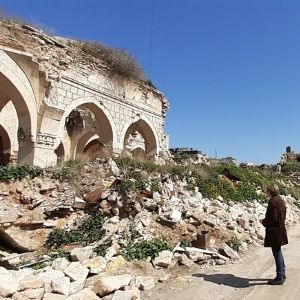 ©Devisme Gaetan/Caritas International.be – Tartous Syria (March 2020).
©Devisme Gaetan/Caritas International.be – Tartous Syria (March 2020).
TENSE POLITICAL SITUATION
“The fighting in Syria has not stopped despite the UN call for a ceasefire. The situation in Iraq and Palestine is also very tense. This crisis can aggravate pre-existing tensions. It can also lead people, in a quest for survival, to continue fighting, plundering, etc. In a region that is still a theatre of war, access for humanitarian organizations, whether for Caritas or for others, is extremely problematic.” In Lebanon, the political crisis is also impacting many people and causing more damage. But Caritas remains supportive of the most vulnerable people.
HUMANITARIAN AID TO GO?
In Lebanon, Caritas is one of the country’s leading NGOs and is part of the national information and response system. In Syria, Caritas remains close to the population and raises awareness about the reality of the virus. “These Church networks and Caritas in particular have a strong experience in communication and creating awareness,” explains Sébastien. “In addition, the Caritas network is adapting to new realities; for some people, being able to wash their hands several times a day is already a luxury. We have to face this reality and design humanitarian aid according to these contexts. This is what the Caritas network is currently putting in place.”
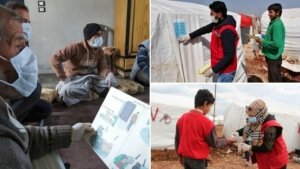 ©Caritas Luxembourg- Caritas helps displaced people in camps north of Idib in Syria with sanitation.
©Caritas Luxembourg- Caritas helps displaced people in camps north of Idib in Syria with sanitation.
Our partners also distribute hygiene kits with soap, hand towels and disinfectant. Due to the widespread increase in prices, many families are going hungry. For them, Caritas organizes food aid via the distribution of food kits or direct monetary aid.
ONE OBJECTIVE: TO BE THERE FOR THE VICTIMS OF THE PANDEMIC
In Belgium, Caritas International makes every effort to ensure the social support and protection of people, within its reception facilities and where its assistance is required, and in particular the most vulnerable among them.
In addition to the above mentioned countries, the Caritas network is also active in the fight against the spread of the virus in more than 100 countries. In DR Congo, Rwanda, Zimbabwe, Venezuela or, closer to home in Italy, where mobile teams help with screening, organize emergency reception, food distribution, etc. In response to this global emergency, Caritas International and the six other members of Consortium 12-12 have launched a joint call for solidarity. Under the name of COVID 12-12, this call aims to gather the necessary means to intervene with those who need it most.
Every minute counts to save lives! Support the Coronavirus Emergency Fund through our online donation platform, or our account BE88 0000 0000 4141 with the code «Coronavirus 005».









